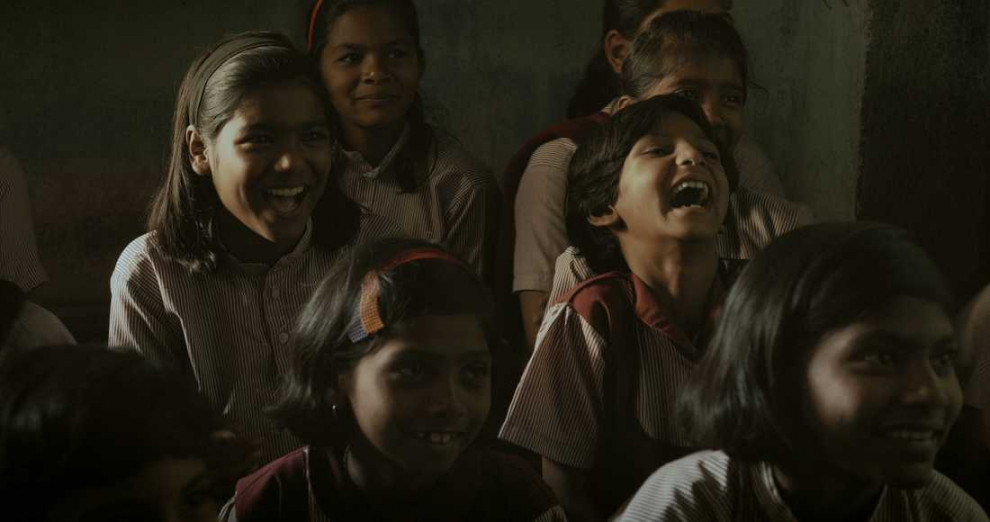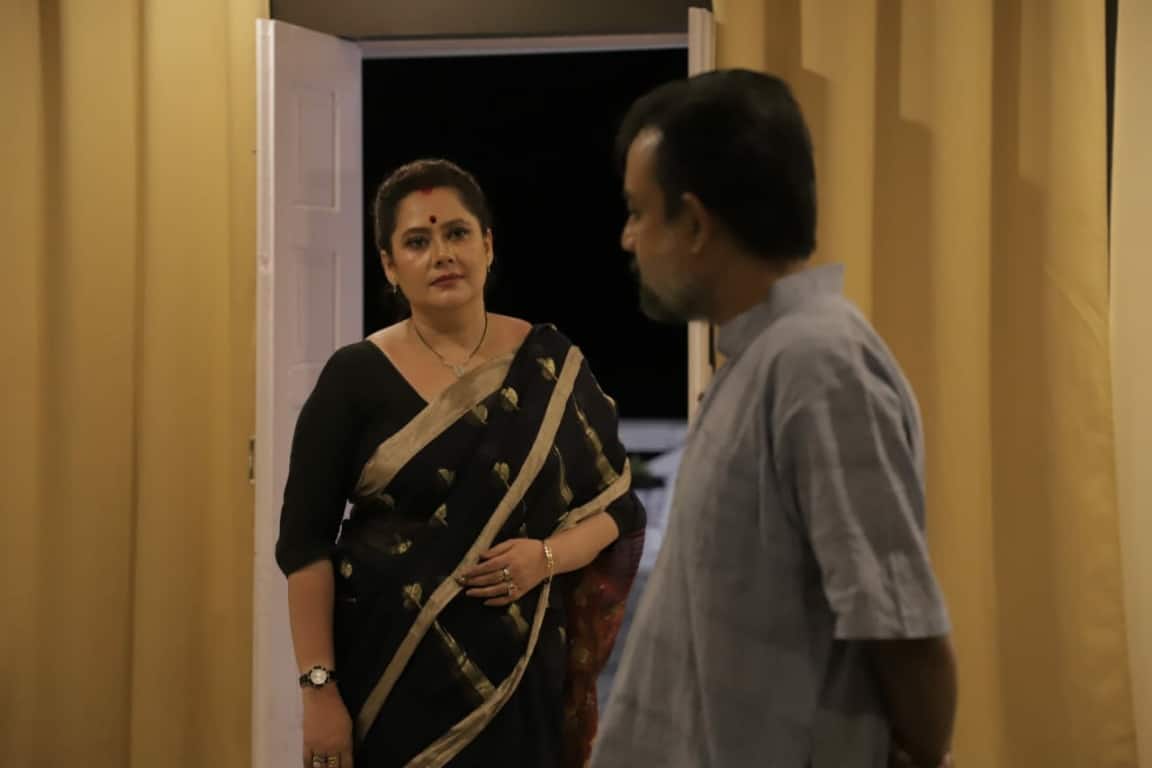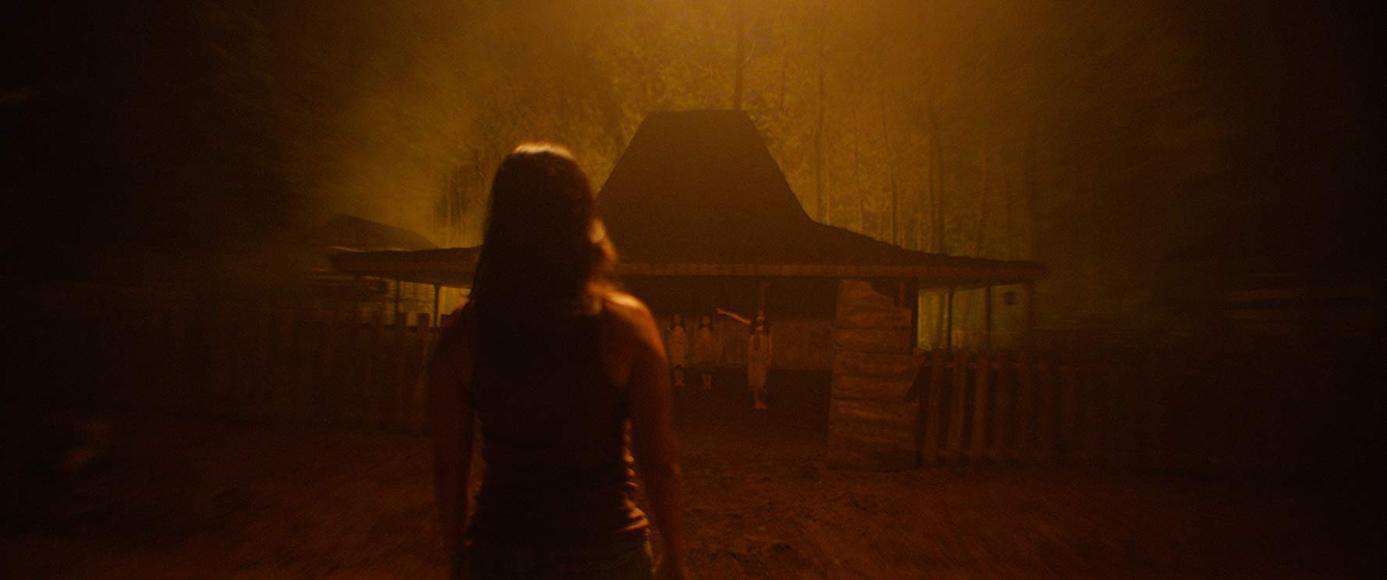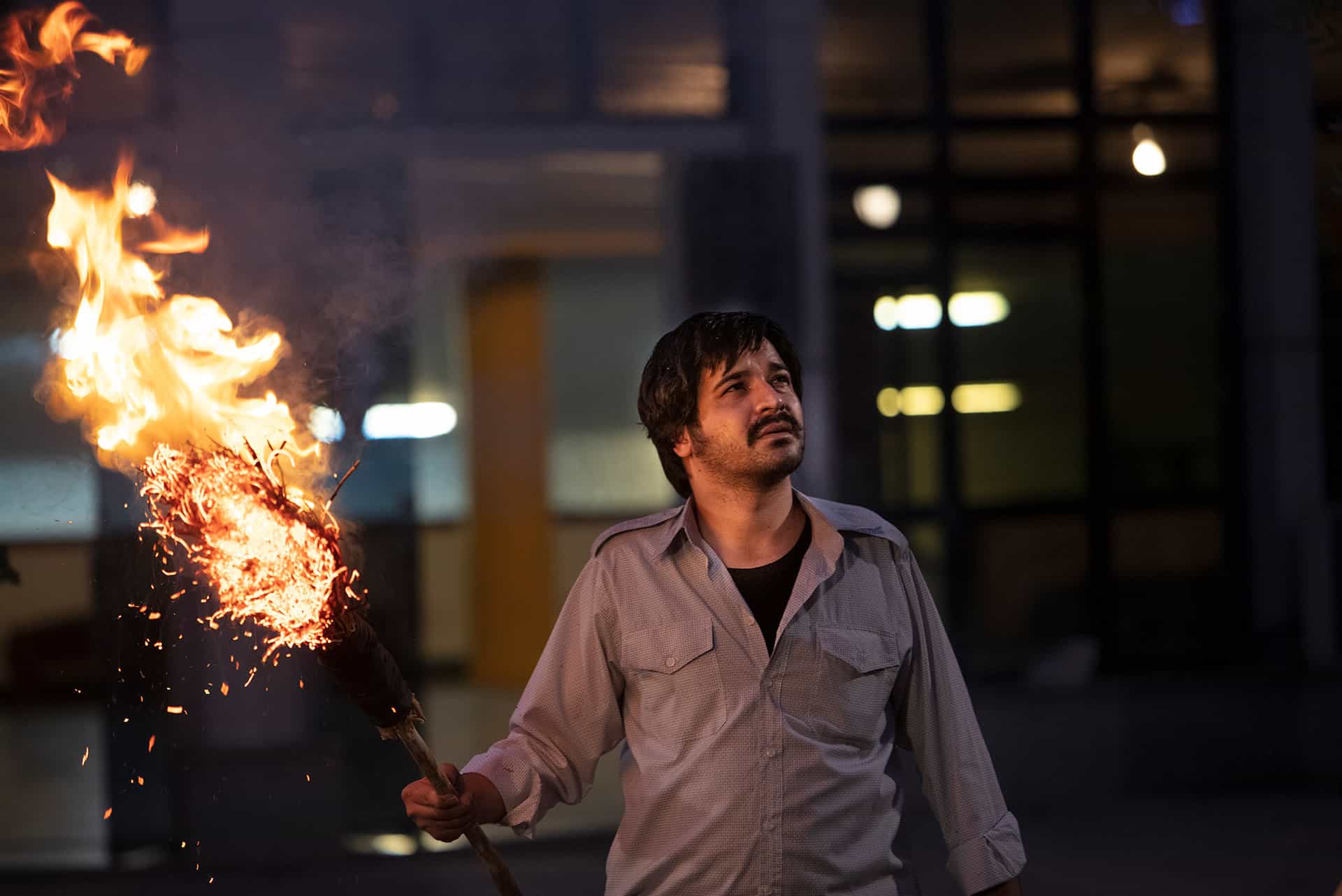At least beforehand, it is always quite difficult to review movies that are important for reasons the surpass cinema. “A Thing of Magic” is definitely one of those films, as you are about to read.
[From the Press Kit] This movie was made by a group of cinema-loving story-hunters and storytellers, in collaboration with a village full of welcoming people who are unafraid to dream.
Our production team traveled more than 2000km from Kerala in southern India and set up camp for a month-long shoot in Arale, a beautiful nondescript village in the western Indian state of Maharashtra.
The entire film's cast were first-time actors and residents of the village where the story is set. Most of the actors were not by predetermined choice. They were approached, found, and brought to the set by knocking on doors on the day a particular scene was to be shot. Around a hundred people of the very village acted in the film. Despite this, the film houses some golden moments of unscripted and non-staged moments as well.
This wouldn't have been possible without the support of the welcoming people of Arale, many of whom are in the cast and surprised us with their effortless acting, to a script originally in Malayalam and English, translated into Marathi, and directed in a lot of Hindi – proving that language can be no barrier to filmmaking. This journey led to the discovery of acting talent tucked away from the mainstream, and a platform for them to perform and enjoy the challenges and thrills of movie-making.

Gundu Kaakka is a struggling harmonium player, who aspires to join a local drama troupe. One day, after watching a 3D movie, he presents a pair of 3D glasses to two sisters – Pradnya and Pratheeksha. He tells them that the glasses have magical powers visible only to him. Though they initially refuse to believe him, an event soon occurs that raises the sisters' curiosity, to the point that they become obsessed with the glasses, even wearing them while sleeping. Furthermore, the glasses intensify the tension that already preexisted between the two sisters. Through their story, the film also explores a number of other episodes, mostly revolving around Gundu and the continuous criticism he receives from Bapu, a man who plays cards with. His harmonium also gets to become a factor in the narrative.
Considering the premises of the film, a narrative that lingers between the documentary and the drama was inevitable, but Nithil Anil combined the two quite artfully. The first aspect benefits the most by Priyadarsan ND's excellent cinematography, who captures the beauties of the area and the lives of the locals with a combination of realism and artistry. The comments regarding friendship, entertainment, and following your dreams regardless of society's criticism are also here and presented in subtle but eloquent fashion.

The second aspect benefits the most by some really impressive performances from the non-actors of the cast. The attention of most audiences will fall on the highly naturalistic ones of the two girls, Vaibhavi Pramod Kadam as Prateeksha and Pradnya Parshuram Kadam as Pradnya; however, the truly memorable acting comes from Harshad Baliram Kadam who plays Gundu Kakka in hilarious fashion and Tanaji Hanmant Kadam as the judgmental but wise Bapu, who depicts his character in a fashion that emits respect from every line. The fact that he has really long lines but he utters them without any difficulty is a testament to his performance, while the antithetical chemistry of the two is one of the film's greatest assets. The scene with Gundu's reaction after his long speech will make any audience laugh.
Vignesh editing connects the various scenes nicely, inducing the film with an idyllic pace that suits its narrative. However, somewhere here lies my sole objection on the film, which I think it is a bit too lengthy for its own good, since the story is not enough to carry the movie to the almost 100 minutes of its duration, and some more trimming would definitely benefit the final sense it leaves.
Nevertheless, and despite the aforementioned, “A Thing of Magic” is a film that truly highlights the power of cinema and a more than commendable effort from its whole crew.















